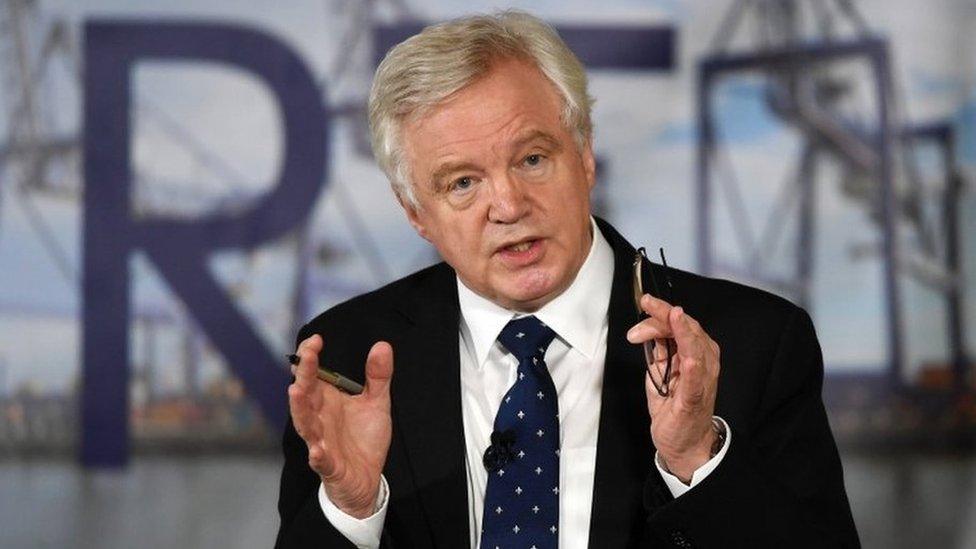Reality Check: EU lays out its transition position
- Published
The European Union has laid out its guidelines, external (known officially as supplementary directives) for the transition period after the UK formally leaves it, presumably in March next year.
This is just the start of the negotiations - this is the agreed position of the other 27 member states.
It's quite a dense, legalistic document, so Reality Check has pulled out some of the more important sections.
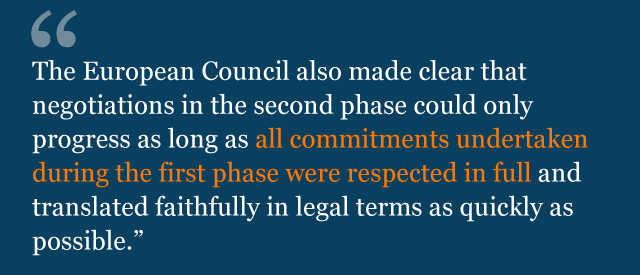
This is a bit of a warning shot. The guidelines begin with several paragraphs reminding us of what's been agreed so far, and emphasise that those agreements have to be respected if further progress is to be made.
One example: the EU believes there was an understanding that the transition period would maintain the status quo - in other words, all existing rules, regulations and arrangements would continue to operate.
But the UK is now seeking some exceptions, and that will complicate matters. The government hopes a deal on the transition can be completed in March, but there's no guarantee that will happen.
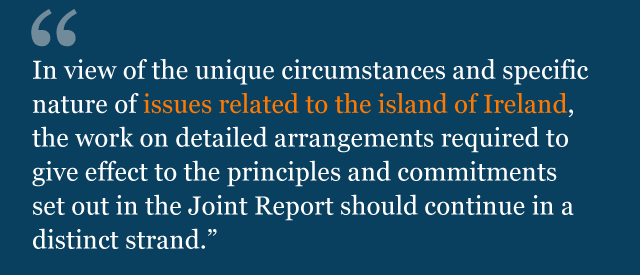
Irish border alert - don't think that you've heard the last of it. The language used in the December agreement was a fudge, and it will be difficult to translate into a legal text.
Remember, the UK pledged that - if all else failed - it would maintain full alignment with those rules of the single market and the customs union that affected the border.
The EU isn't sure how that can be done if the UK insists on leaving the single market and the customs union.
There are various legal quirks to be found in small territories around the edges of the EU, but the challenge in Ireland is of a different scale. Creative solutions are required.

This is an old favourite making yet another comeback, but it is worth highlighting again.
It is one of the "core principles" the EU says it will apply to both transitional arrangements and the future relationship with the UK. So, during the transition, the EU will insist that freedom of movement of people should continue in full, as should UK participation in the single market and the customs union.
Suggestions from London that some things could change during the transition (hence the phrase "implementation" period) are met with raised eyebrows and rolling eyes elsewhere on the Continent.
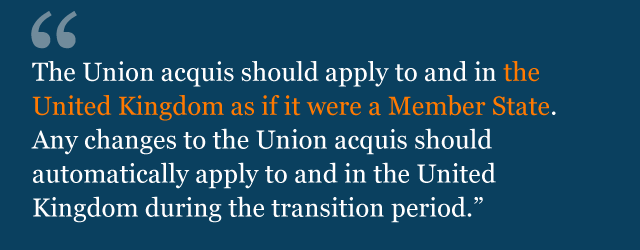
Remember, the acquis is the set of laws, treaties and agreements that apply to all members. This one is politically difficult for the UK government, given the scale of unrest on its back benches.
The EU says the UK will have to accept any new laws passed during the transition even though it will no longer have any say in making them.
Brexit Secretary David Davis has pointed out it takes about two years for new legislation to make its way through the EU system, so most new laws will have been drafted while the UK was still a member state.
But he also said it was important to find a mechanism for resolving concerns about any new laws the UK did not like. The opening gambit from the EU suggests there is very little wiggle room.
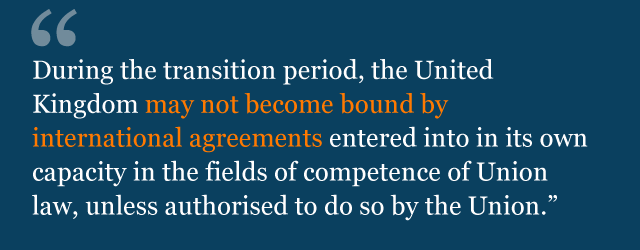
This is a quick reminder of the official position of the other 27 member states: the UK can't actually implement new agreements with other countries during what it likes to call the implementation period, unless the EU gives a nod of approval.
Spoiler: the EU won't do that for important things such as ambitious new trade deals.
The government points out it will be able to negotiate and even sign trade deals during this period, but implementation will have to wait.
It is a moot point anyway, because we do not know whether other countries will be willing to finalise a trade deal with the UK before they know what the future UK-EU trade relationship is going to be.
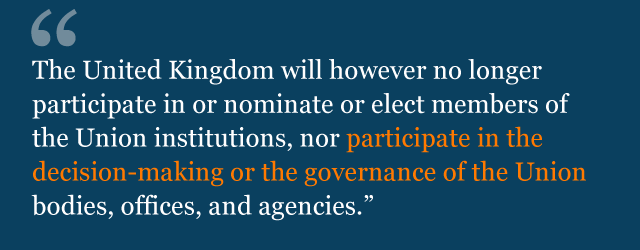
This is the kicker towards the end, which is giving rise to accusations from Brexiteers that the UK will become a "vassal state" during transition.
The UK will no longer play any formal role, or have any vote, in any of the EU institutions, even though it will be obliged to follow all EU laws.
The government points out this will apply only for a strictly time-limited period, and says it is necessary to provide business with the continuity it seeks.
In fact, the EU guidelines say the transition should last less than two years - "not beyond 31 December 2020".
But many business groups worry that will not be long enough. Perhaps that's one of the reasons why an annex to these guidelines says they will be kept under review and updated as necessary.



- Published29 January 2018
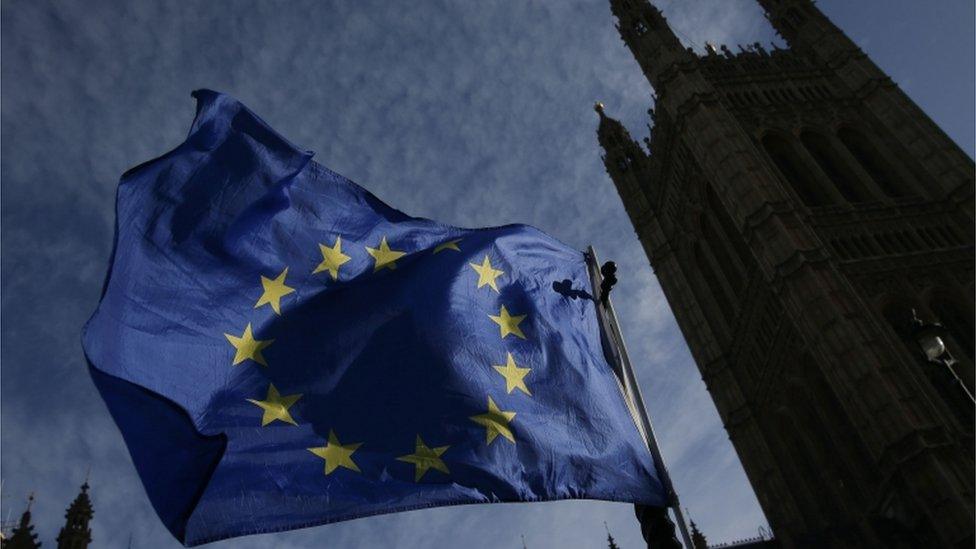
- Published26 January 2018
